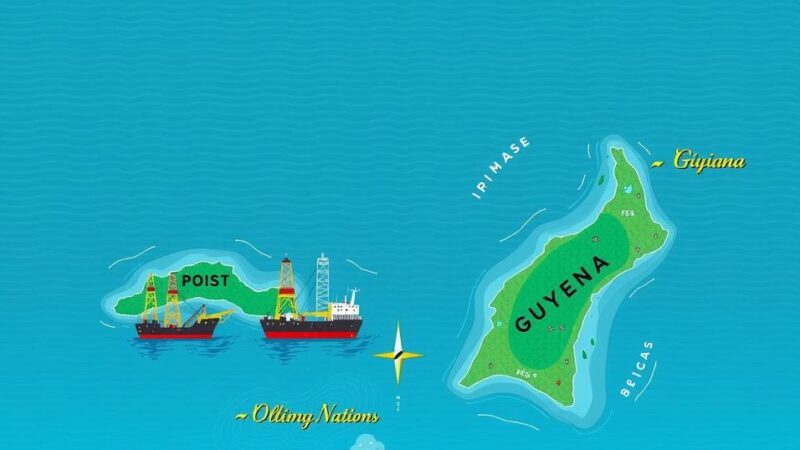President Trump invoked the 1798 Alien Enemies Act to combat the Venezuelan gang Tren De Aragua, citing national security threats. This move enables mass deportations of gang members but faces potential legal challenges. Critics argue it raises concerns over civil liberties, while Trump continues to amplify concerns about immigrant-related crimes.
On Saturday, President Donald Trump invoked the Alien Enemies Act of 1798 to combat the gang Tren De Aragua, identified as a hostile force associated with the Venezuelan government. This act allows the President greater authority regarding immigration policies, effectively expediting mass deportations of individuals labeled as threats. Trump asserts that Tren De Aragua engages in criminal activities, including kidnapping and extortion, thus jeopardizing national security.
The president characterized Tren De Aragua’s actions as “irregular warfare against the United States,” indicating a need for immediate measures to counter what he perceives as a significant threat. This proclamation closely follows a federal judge’s ruling, which temporarily halted deportations of five Venezuelan nationals, foreshadowing the potential for legal challenges against Trump’s directive.
Tren De Aragua has gained notoriety in the United States following criminal incidents, including a violent raid at an apartment complex in Denver last August. The assertion that members of this gang are involved in criminal endeavors across the U.S. has been a central theme in Trump’s campaign rhetoric, echoing concerns about increased “migrant crime.”
Critics, including civil rights advocates and some Democrats, have expressed concern regarding the use of the Alien Enemies Act for mass deportations. Although previously employed during World War II, such authority is controversial and may ignite legal opposition. Trump previously designated Tren De Aragua and several other gangs as global terrorist organizations, reinforcing his administration’s tough stance on immigration.
The gang, primarily forming in Venezuelan prisons, has not established a strong presence in the U.S., with estimates indicating only a few hundred members amidst a larger Venezuelan population. Trump’s recent proclamation grants authority to detain and deport Venezuelan citizens over 14 years of age affiliated with the gang. The government has recently experienced a surge in litigation regarding these immigration enforcement actions, reflecting rising tensions surrounding the issue.
This move comes as the Immigration and Customs Enforcement (ICE) has undertaken nationwide raids to apprehend individuals associated with Tren De Aragua, demonstrating a commitment to addressing crime linked to this group. In addition, plans are underway to relocate individuals classified as gang members to detention facilities in El Salvador. Trump’s immigration policies face challenges as his administration strives to balance enforcement and legal considerations.
In summary, President Donald Trump’s invocation of the Alien Enemies Act signifies an aggressive approach towards combating the Tren De Aragua gang, which is viewed as a threat to national security. While this action facilitates expedited deportations, it has drawn criticism and may encounter legal hurdles. The ongoing discourse surrounding immigration enforcement highlights the complexities involved in balancing national security and civil liberties within the United States.
Original Source: www.dailymail.co.uk






